Caroline Brun
FrenchToxicityPrompts: a Large Benchmark for Evaluating and Mitigating Toxicity in French Texts
Jun 25, 2024



Abstract:Large language models (LLMs) are increasingly popular but are also prone to generating bias, toxic or harmful language, which can have detrimental effects on individuals and communities. Although most efforts is put to assess and mitigate toxicity in generated content, it is primarily concentrated on English, while it's essential to consider other languages as well. For addressing this issue, we create and release FrenchToxicityPrompts, a dataset of 50K naturally occurring French prompts and their continuations, annotated with toxicity scores from a widely used toxicity classifier. We evaluate 14 different models from four prevalent open-sourced families of LLMs against our dataset to assess their potential toxicity across various dimensions. We hope that our contribution will foster future research on toxicity detection and mitigation beyond Englis
An Adapter-Based Unified Model for Multiple Spoken Language Processing Tasks
Jun 20, 2024Abstract:Self-supervised learning models have revolutionized the field of speech processing. However, the process of fine-tuning these models on downstream tasks requires substantial computational resources, particularly when dealing with multiple speech-processing tasks. In this paper, we explore the potential of adapter-based fine-tuning in developing a unified model capable of effectively handling multiple spoken language processing tasks. The tasks we investigate are Automatic Speech Recognition, Phoneme Recognition, Intent Classification, Slot Filling, and Spoken Emotion Recognition. We validate our approach through a series of experiments on the SUPERB benchmark, and our results indicate that adapter-based fine-tuning enables a single encoder-decoder model to perform multiple speech processing tasks with an average improvement of 18.4% across the five target tasks while staying efficient in terms of parameter updates.
DistilWhisper: Efficient Distillation of Multi-task Speech Models via Language-Specific Experts
Nov 02, 2023



Abstract:Whisper is a multitask and multilingual speech model covering 99 languages. It yields commendable automatic speech recognition (ASR) results in a subset of its covered languages, but the model still under-performs on a non-negligible number of under-represented languages, a problem exacerbated in smaller model versions. In this work, we propose DistilWhisper, an approach able to bridge the performance gap in ASR for these languages while retaining the advantages of multitask and multilingual capabilities. Our approach involves two key strategies: lightweight modular ASR fine-tuning of whisper-small using language-specific experts, and knowledge distillation from whisper-large-v2. This dual approach allows us to effectively boost ASR performance while keeping the robustness inherited from the multitask and multilingual pre-training. Results demonstrate that our approach is more effective than standard fine-tuning or LoRA adapters, boosting performance in the targeted languages for both in- and out-of-domain test sets, while introducing only a negligible parameter overhead at inference.
What Do Compressed Multilingual Machine Translation Models Forget?
May 22, 2022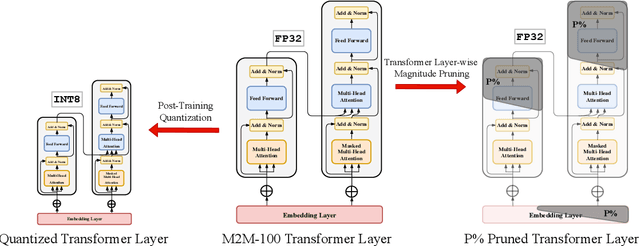

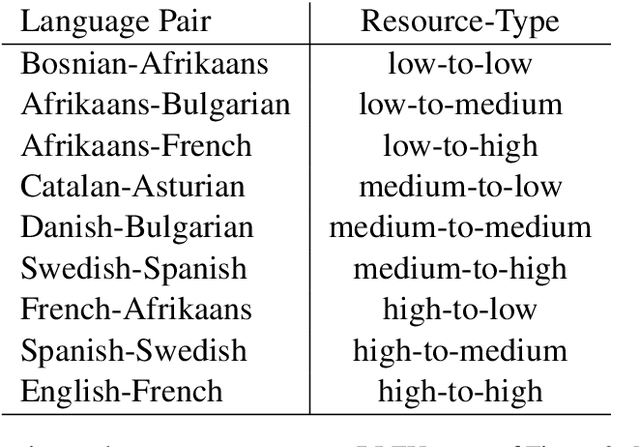
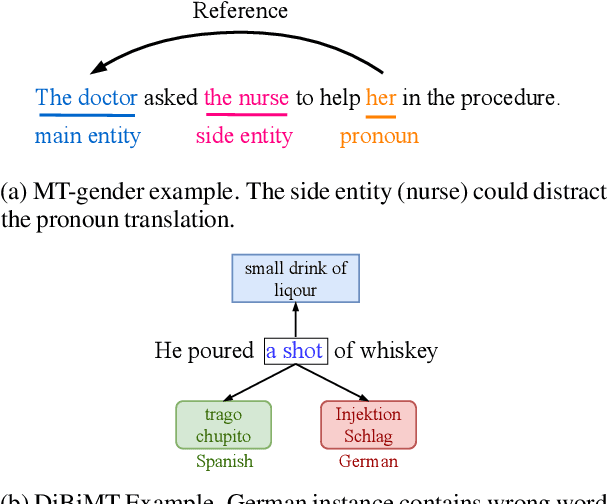
Abstract:Recently, very large pre-trained models achieve state-of-the-art results in various natural language processing (NLP) tasks, but their size makes it more challenging to apply them in resource-constrained environments. Compression techniques allow to drastically reduce the size of the model and therefore its inference time with negligible impact on top-tier metrics. However, the general performance hides a drastic performance drop on under-represented features, which could result in the amplification of biases encoded by the model. In this work, we analyze the impacts of compression methods on Multilingual Neural Machine Translation models (MNMT) for various language groups and semantic features by extensive analysis of compressed models on different NMT benchmarks, e.g. FLORES-101, MT-Gender, and DiBiMT. Our experiments show that the performance of under-represented languages drops significantly, while the average BLEU metric slightly decreases. Interestingly, the removal of noisy memorization with the compression leads to a significant improvement for some medium-resource languages. Finally, we demonstrate that the compression amplifies intrinsic gender and semantic biases, even in high-resource languages.
NL-Augmenter: A Framework for Task-Sensitive Natural Language Augmentation
Dec 06, 2021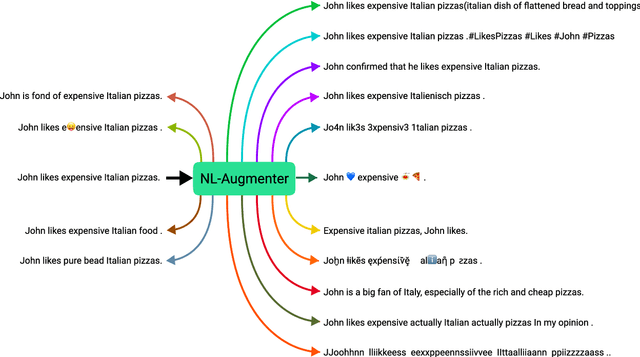
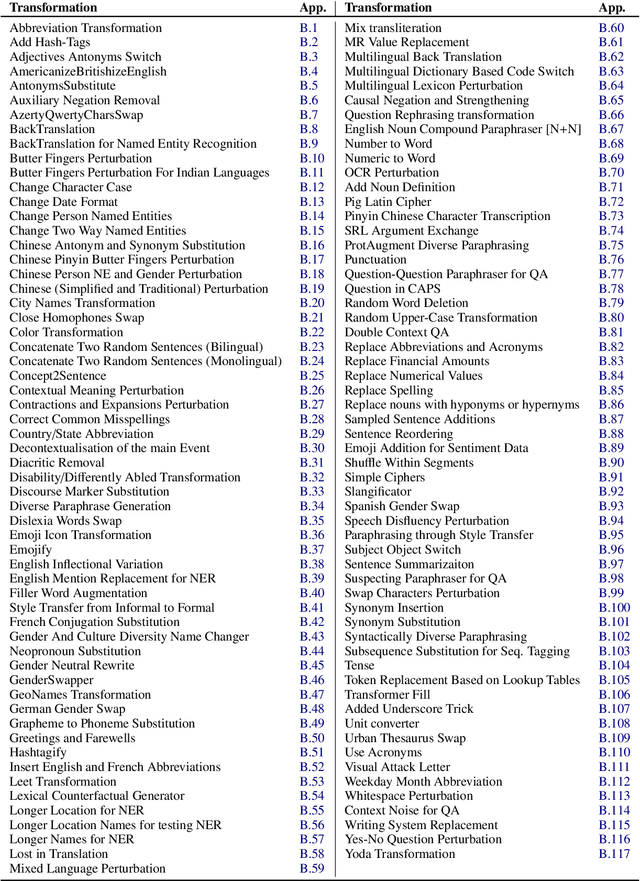
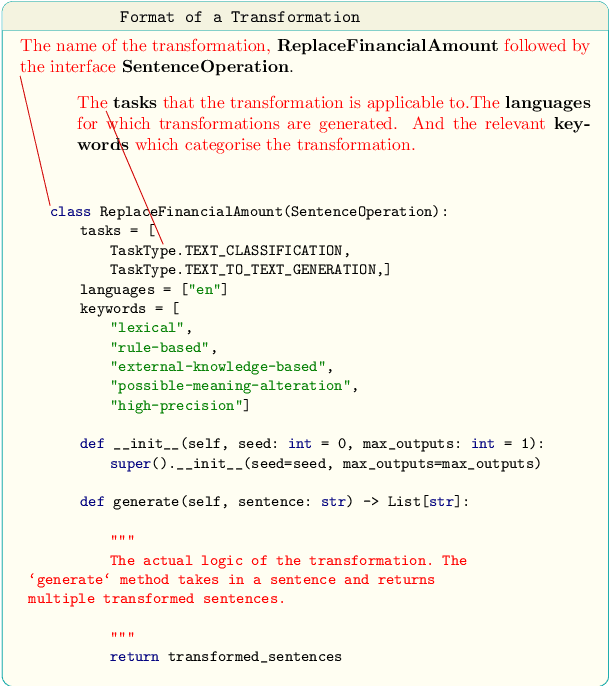
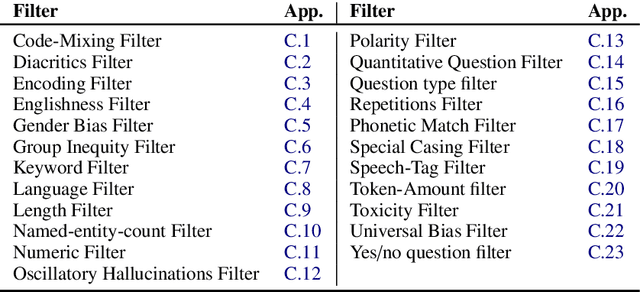
Abstract:Data augmentation is an important component in the robustness evaluation of models in natural language processing (NLP) and in enhancing the diversity of the data they are trained on. In this paper, we present NL-Augmenter, a new participatory Python-based natural language augmentation framework which supports the creation of both transformations (modifications to the data) and filters (data splits according to specific features). We describe the framework and an initial set of 117 transformations and 23 filters for a variety of natural language tasks. We demonstrate the efficacy of NL-Augmenter by using several of its transformations to analyze the robustness of popular natural language models. The infrastructure, datacards and robustness analysis results are available publicly on the NL-Augmenter repository (\url{https://github.com/GEM-benchmark/NL-Augmenter}).
Toward Automatic Understanding of the Function of Affective Language in Support Groups
Oct 06, 2016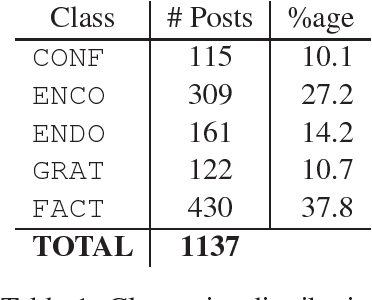
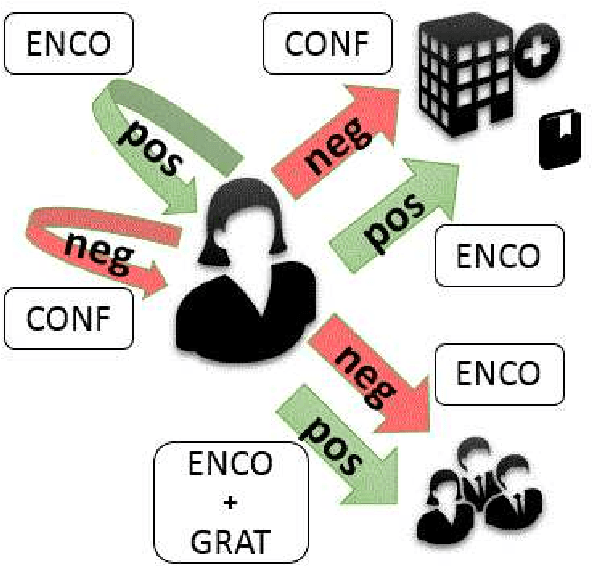
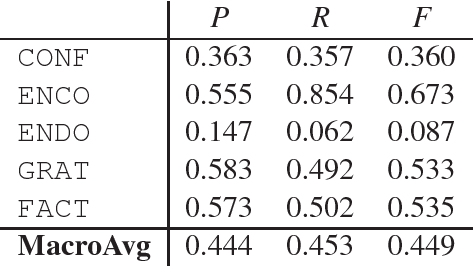
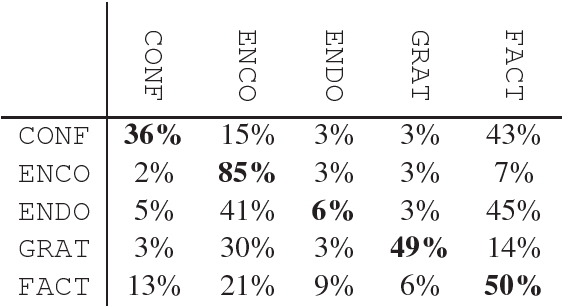
Abstract:Understanding expressions of emotions in support forums has considerable value and NLP methods are key to automating this. Many approaches understandably use subjective categories which are more fine-grained than a straightforward polarity-based spectrum. However, the definition of such categories is non-trivial and, in fact, we argue for a need to incorporate communicative elements even beyond subjectivity. To support our position, we report experiments on a sentiment-labelled corpus of posts taken from a medical support forum. We argue that not only is a more fine-grained approach to text analysis important, but simultaneously recognising the social function behind affective expressions enable a more accurate and valuable level of understanding.
 Add to Chrome
Add to Chrome Add to Firefox
Add to Firefox Add to Edge
Add to Edge